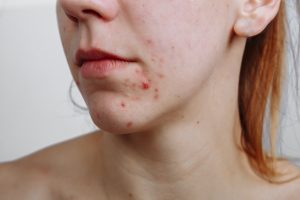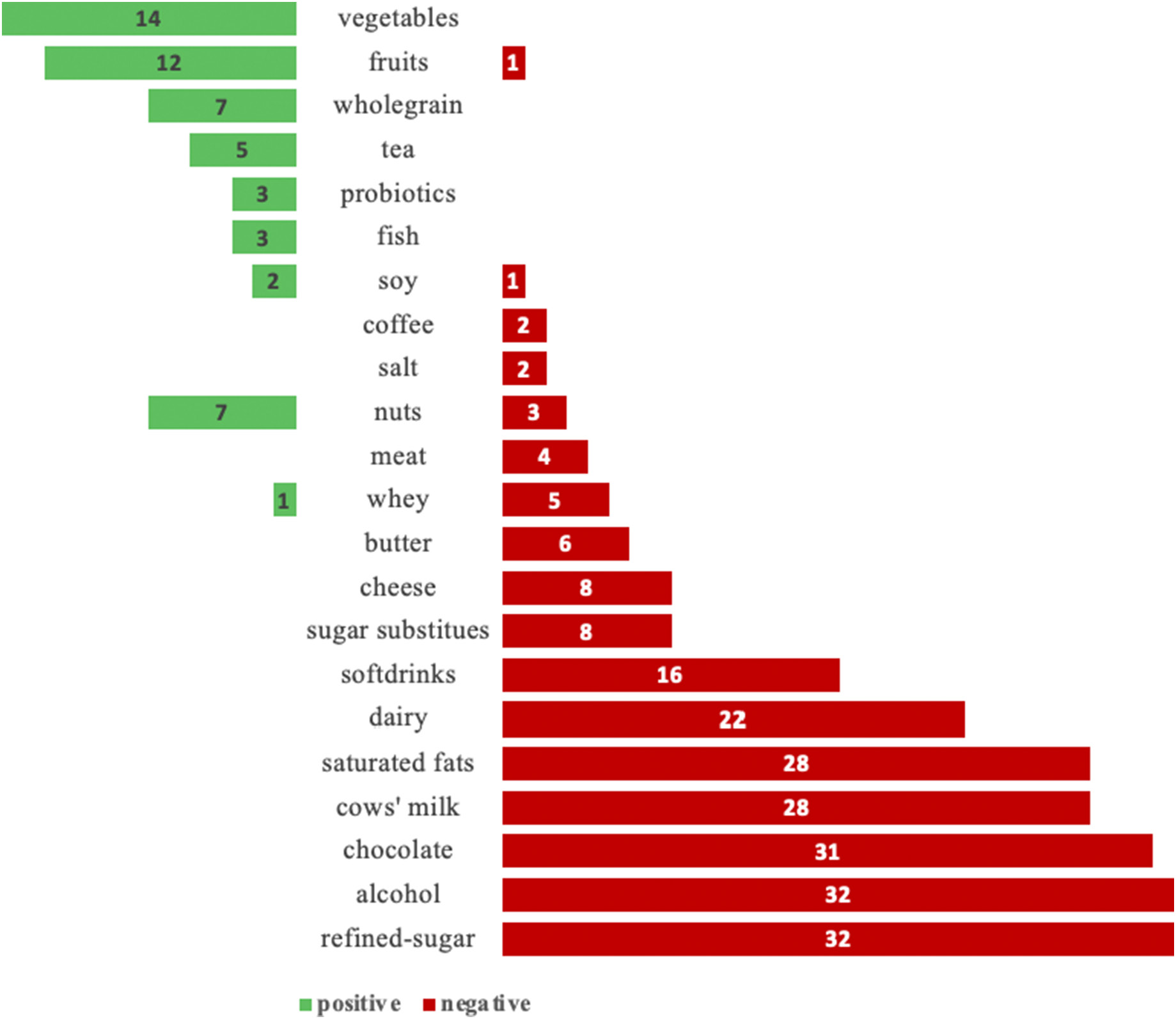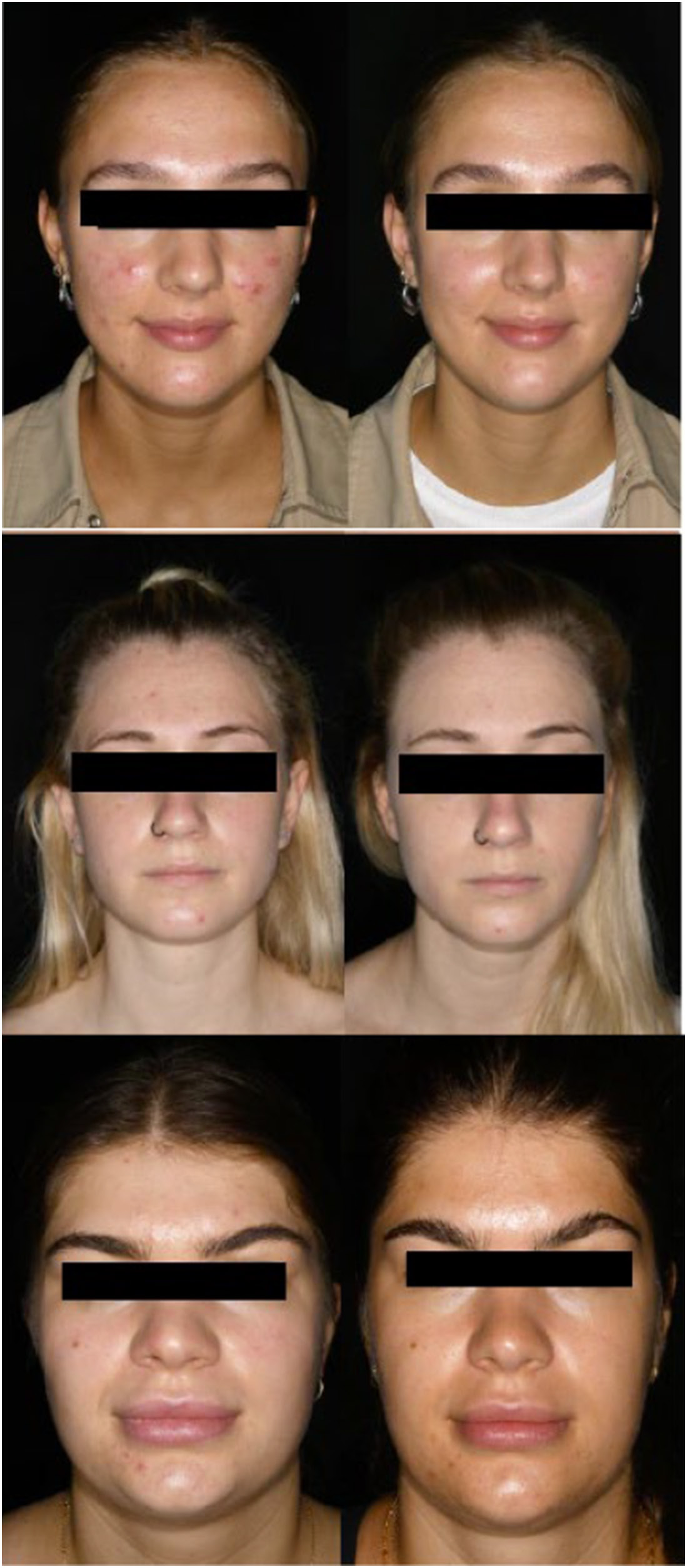Over 16 weeks, a Mediterranean diet and algae-derived omega-3 supplements led to sizable reductions in inflammatory and non-inflammatory skin lesions in 60 people with mild to moderate acne, a German study reported.
Key Points
- A new study published in the Journal of Cosmetic Dermatology found that following a Mediterranean diet and taking algae-derived omega-3 supplements for 16 weeks led to sizable reductions in inflammatory and non-inflammatory skin lesions in 60 people with mild to moderate acne
- 98.3% of participants had low blood levels of omega-3 fatty acid at the beginning of the study; acne severity decreased significantly in those who reached a target Omega-3 Index of 8% or higher
- The study’s primary objective was to see if they could raise patients’ levels of omega-3 fatty acids in their blood by recommending a plant-focused Mediterranean diet and supplementing with oral omega-3 fatty acids; the study achieved that objective and another one — demonstrating a significant change in acne for the better
- When people with mild to moderate acne lack sufficient omega-3 fatty acids, a Mediterranean diet and oral supplements can reduce the number of active lesions, even though this doesn’t appear to affect facial oil production
 NEW YORK, July 10 (UPI) — For acne patients deficient in omega-3 fatty acids, following a plant-focused, varied Mediterranean diet and taking supplements with those nutrients can result in major skin improvements and quality of life, a new study shows.
NEW YORK, July 10 (UPI) — For acne patients deficient in omega-3 fatty acids, following a plant-focused, varied Mediterranean diet and taking supplements with those nutrients can result in major skin improvements and quality of life, a new study shows.
The study, conducted at Ludwig Maximilian University of Munich in Germany, was published Wednesday in the Journal of Cosmetic Dermatology.
Prescription medications are necessary to treat acne, especially in severe cases, to avoid drawn-out suffering and long-term scarring, the study’s authors acknowledged. However, “the potential of lifestyle interventions should not be neglected,” they wrote.
Over 16 weeks, a Mediterranean diet and algae-derived omega-3 supplements led to sizable reductions in inflammatory and non-inflammatory skin lesions in 60 people with mild to moderate acne, the study reported.
Notably, 98.3% of participants without prescription medication had omega-3 fatty acid deficits when the study began. Acne severity decreased significantly in those who reached target omega-3 fatty acid levels on a test measuring the amounts of EPA (eicosapentaenoic acid) and DHA (docosahexaenoic acid) in participants’ blood.
EPA and DHA are the most important omega-3 fatty acids. They’re primarily found in fatty fish and algae, meat and dairy from grass-fed animals, and omega-3-enriched eggs or pastured eggs.
“Lifestyle interventions, including dietary recommendations, should not be considered in opposition to prescription medications, but rather as a valuable adjunct to any modern acne treatment plan,” Dr. Anne Guertler, the study’s corresponding author and a dermatologist at Ludwig Maximilian University of Munich in Germany, said in a news release.
“Future studies should build on the foundation laid by our current findings in a randomized, placebo-controlled design to improve dietary recommendations for acne patients,” Guertler said.
Although four participants reported worsening of their appearance, overall quality of life improved for the others, particularly in those with acne papulopustular, a moderate to severe form that penetrates the deeper skin layers with irritated spots and sometimes inflammation.
 Participants received individual counseling and were encouraged to follow a Mediterranean diet composed mainly of unprocessed, seasonal, nutrient-dense ingredients, and to prepare home-cooked meals. They were advised to reduce intake of ultra-processed foods, milk and dairy products, and meat. Standardized food frequency questionnaires recorded their compliance with dietary recommendations.
Participants received individual counseling and were encouraged to follow a Mediterranean diet composed mainly of unprocessed, seasonal, nutrient-dense ingredients, and to prepare home-cooked meals. They were advised to reduce intake of ultra-processed foods, milk and dairy products, and meat. Standardized food frequency questionnaires recorded their compliance with dietary recommendations.
Researchers were able to more clearly define dietary triggers of acne than beneficial foods. “In the pursuit of skin health,” especially in young people, the researchers wrote that “clinicians and patients are more than ever seeking treatment approaches that go beyond the conventional options of topical and systemic prescription medications.”
They pointed out that a more profound understanding has emerged of the interplay between environmental factors and skin health. Growing evidence indicates that nutrition is a vital component in the formation of skin irregularities or lesions.
They noted the combination of skin care, diet, pollutants, occupational factors, climatic influences and psychosocial variables can affect the onset, duration and severity of skin disease.
“The article gives attention to the importance of lifestyle adjustments, including dietary considerations in acne, an area that warrants additional scientific investigation,” said Dr. James Del Rosso, president of the American Acne & Rosacea Society. He was not involved in the study.
“Lifestyle modifications are not suggested as approaches to be used instead of or to replace established medical and/or procedural treatments,” said Del Rosso, who also is research director at JDR Dermatology Research, a medical group practice in Las Vegas.
“Rather, they can importantly partner with and work to further improve positive outcomes for patients.”
Dr. Kord Honda, a dermatologist at University Hospitals Cleveland Medical Center, agreed that “it is hard to make sweeping conclusions” based on “a relatively small study.”
Even so, “omega-3 fatty acids may help to reduce inflammation, and this study’s primary objective was to see if they could raise patients’ levels of omega-3 fatty acids in their blood by recommending a plant-focused Mediterranean diet and supplementing with oral omega-3 fatty acids,” Honda said.
 Researchers achieved that objective and another one — demonstrating improvement in acne, and there was a significant change for the better, said Honda, who also is a professor of dermatology at Case Western Reserve University School of Medicine in Cleveland.
Researchers achieved that objective and another one — demonstrating improvement in acne, and there was a significant change for the better, said Honda, who also is a professor of dermatology at Case Western Reserve University School of Medicine in Cleveland.
However, Honda added that this study did not evaluate patients with severe acne, and participants did not use acne medication, which likely would have improved their condition further.
“Treatment of acne can help prevent scarring and discoloration,” he said. “It often improves with age, but not always.”
Honda recommends seeing a dermatologist to establish a treatment plan. The dermatologist can perform a physical examination and obtain a patient’s health history to decide on the best approach. Options include topical treatments, antibiotics and lifestyle changes, including diet.
“Eating a Mediterranean diet enriched with omega-3 fatty acids has been shown to confer significant health benefits in a number of areas,” said Dr. Shoshana Marmon, an assistant professor of dermatology at New York Medical College in Valhalla, N.Y.
Known benefits include reducing the risk of cardiovascular disease, lowering blood pressure, decreasing triglycerides in the blood, and helping alleviate joint inflammation in rheumatoid arthritis.
“Larger randomized controlled trials are needed to confirm the results of this pilot study and demonstrate causality” for acne improvement, Marmon said.
Until then, said Dr. Nishit Patel, vice president of Tampa General Hospital, “the key takeaway is that diet can play a role in skin health, particularly in acne, as shown in this study.”
When people with mild to moderate acne lack sufficient omega-3 fatty acids, a Mediterranean diet and oral supplements can reduce the number of active lesions, even though this doesn’t appear to affect facial oil production, said Patel, who also is a professor of dermatology and cutaneous surgery at USF Health-University of South Florida.
 To determine if a patient with acne is deficient in omega-3 fatty acids, a clinician would order a specific blood test, said Dr. Angela Lamb, vice chair of clinical operations in dermatology at Mount Sinai Health System in New York City.
To determine if a patient with acne is deficient in omega-3 fatty acids, a clinician would order a specific blood test, said Dr. Angela Lamb, vice chair of clinical operations in dermatology at Mount Sinai Health System in New York City.
Lamb said she advises patients to pursue a plant-based diet, while limiting processed foods and dairy and adding items rich in omega-3 fatty acids.
“I wouldn’t necessarily recommend the supplements for everybody,” she said.
The published study can be found at https://onlinelibrary.wiley.com/doi/10.1111/jocd.16434.
Measure Your Levels Today
Create your custom home blood spot kit to help determine if you are getting enough of the following nutrients shown to benefit overall health, along with other measures, including:
 Vitamin D
Vitamin D- Omega-3 Index plus Omega-3:Omega-6 and AA:EPA Ratios
- Magnesium (plus Zinc, Copper, Selenium, Lead, Cadmium & Mercury)
- hsCRP
- HbA1c
- Type 1 Diabetes Autoantibodies
- TSH
Enroll and test your levels today, learn what steps to take to improve your status of omega-3s, vitamin D and other nutrients and blood markers, and take action! By enrolling in the GrassrootsHealth projects, you are not only contributing valuable information to everyone, you are also gaining knowledge about how you could improve your own health through measuring and tracking your nutrient status, and educating yourself on how to improve it.

 Vitamin D
Vitamin D